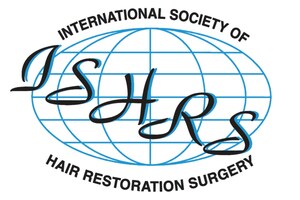Hair Loss Expert Offers Tips For Combating Hair Loss Occurring Postpartum And During Menopause
GENEVA, Ill., July 7, 2016 /PRNewswire-USNewswire/ -- Women experience many distinct life stages that can directly impact hair health. From the joys of being a new mom to the midlife changes that happen during menopause, fluctuating hormones are responsible for temporary postpartum hair loss and thinning hair that is common as women go through "the change". While hair loss during these two life stages are not unusual, women should be aware of certain factors that can contribute to hair loss and how proper nutrition can promote good hair growth.
Postpartum Hair Loss
Hair loss that occurs following pregnancy (postpartum hair loss) is the most common reason that women undergo abnormal hair shedding -- a condition called telogen effluvium. Hair shedding begins a few weeks to three months after delivery and typically lasts less than six months. However, in rare cases, hair shedding post-pregnancy can last up to one year.
Hormonal changes during pregnancy can directly impact hair growth and density. For example, high estrogen levels during pregnancy actually maintain many hairs from being shed -- making hair appear thicker or healthier looking. However, when estrogen levels fall postpartum, these hairs are shed all at once and restore the normal percentages of growing and shedding hairs on the scalp.
"New moms can experience a rollercoaster of emotions after child birth, and noticeable changes in the density of their hair can be alarming for some women if they are not expecting it," said Bernard P. Nusbaum, MD, FISHRS (Miami, Fla.). "While postpartum hair loss is normal, if shedding progresses after one year or if shedding stops but regrowth does not result in the density that was present prior to pregnancy, women should seek a consultation with a hair restoration physician."
In addition to fluctuating estrogen levels, additional factors such as stress, blood loss and other hormonal changes may play a role in postpartum hair loss. Although Dr. Nusbaum noted that there is no way to prevent or minimize postpartum hair loss, he finds that prenatal vitamins prescribed during pregnancy are beneficial for hair health and good protein intake is always beneficial for good hair growth.
Hair Loss During Menopause
Changes in hair density that occur during menopause are quite common, with most studies showing that the percentage of women over age 50 with hair thinning is approximately 40 percent -- and this percentage increases with age.
In some cases, there is a genetic or endocrine predisposition for hair loss in menopausal women. For example, women who have male or female relatives with hair loss may be predisposed to menopausal hair loss, and endocrine diseases such as thyroid or those associated with excess levels or increased sensitivity to androgens (male hormones) can be a factor in this type of hair loss. In addition, iron deficiency can also impact hair loss in women.
But in the majority of cases, hormonal changes associated with menopause are directly responsible for adversely affecting hair follicles.
"When you think of the most common symptoms of menopause, hot flashes, memory loss and weight gain are usually at the top of the list. Hair loss is usually not on a woman's radar of symptoms, so it can take some women by surprise and cause considerable stress. If a woman notices a widened part, receding hair at the temples or more scalp visible through the hair, these are early signs of hair loss that need to be evaluated by an expert in hair loss," said Dr. Nusbaum.
While hair loss that occurs during menopause is largely unavoidable, the good news is there are several safe and effective treatments that can help. Dr. Nusbaum noted that topically applied minoxidil, low-level laser therapy (LLLT), and platelet-rich plasma injections can be used singly or in combination to promote hair growth. In some cases, the "off label" use of finasteride can be effective. For women with diffuse thinning that is widespread or has not responded to medical therapies, hair restoration surgery is a good option. When performed by the right physician, today's hair restoration surgery safely and effectively creates natural-looking, permanent results that are virtually undetectable.
"As women approach menopause, there are several things they can do to keep hair as healthy as possible. Good protein intake, maintaining normal vitamin D and iron levels, and taking a multivitamin without Vitamin A -- which is deleterious to hair -- are helpful. It's also important to note that some of the current anti-aging regimens that contain testosterone or DHEA can actually make hair loss worse in those suffering from menopause-related hair loss," said Dr. Nusbaum.
For more information about hair loss and hair restoration surgery, or to find an ISHRS member physician by state or country, visit the ISHRS website at www.ishrs.org.
About the ISHRS
The International Society of Hair Restoration Surgery (ISHRS) is a global non-profit medical association and a leading authority on hair loss treatment and restoration with more than 1,200 members throughout 70 countries worldwide. Above all, the ISHRS is dedicated to achieving excellence in patient outcomes by promoting the highest standards of medical practice, medical ethics, and research in the medical hair restoration industry. The ISHRS also provides continuing medical education to physicians specializing in hair transplant surgery and is committed to delivering the latest information on medical and surgical treatments to consumers suffering from hair loss, and most commonly from androgenetic alopecia – male pattern baldness and female pattern hair loss. It was founded in 1993 as the first international society to promote continuing quality improvement and education for professionals in the field of hair restoration surgery. For more information and to locate a physician, visit www.ishrs.org.
Contact: Karen Sideris for the ISHRS; [email protected]
Photo - http://photos.prnewswire.com/prnh/20160706/386669-INFO
SOURCE International Society of Hair Restoration Surgery
Related Links
WANT YOUR COMPANY'S NEWS FEATURED ON PRNEWSWIRE.COM?
Newsrooms &
Influencers
Digital Media
Outlets
Journalists
Opted In





Share this article